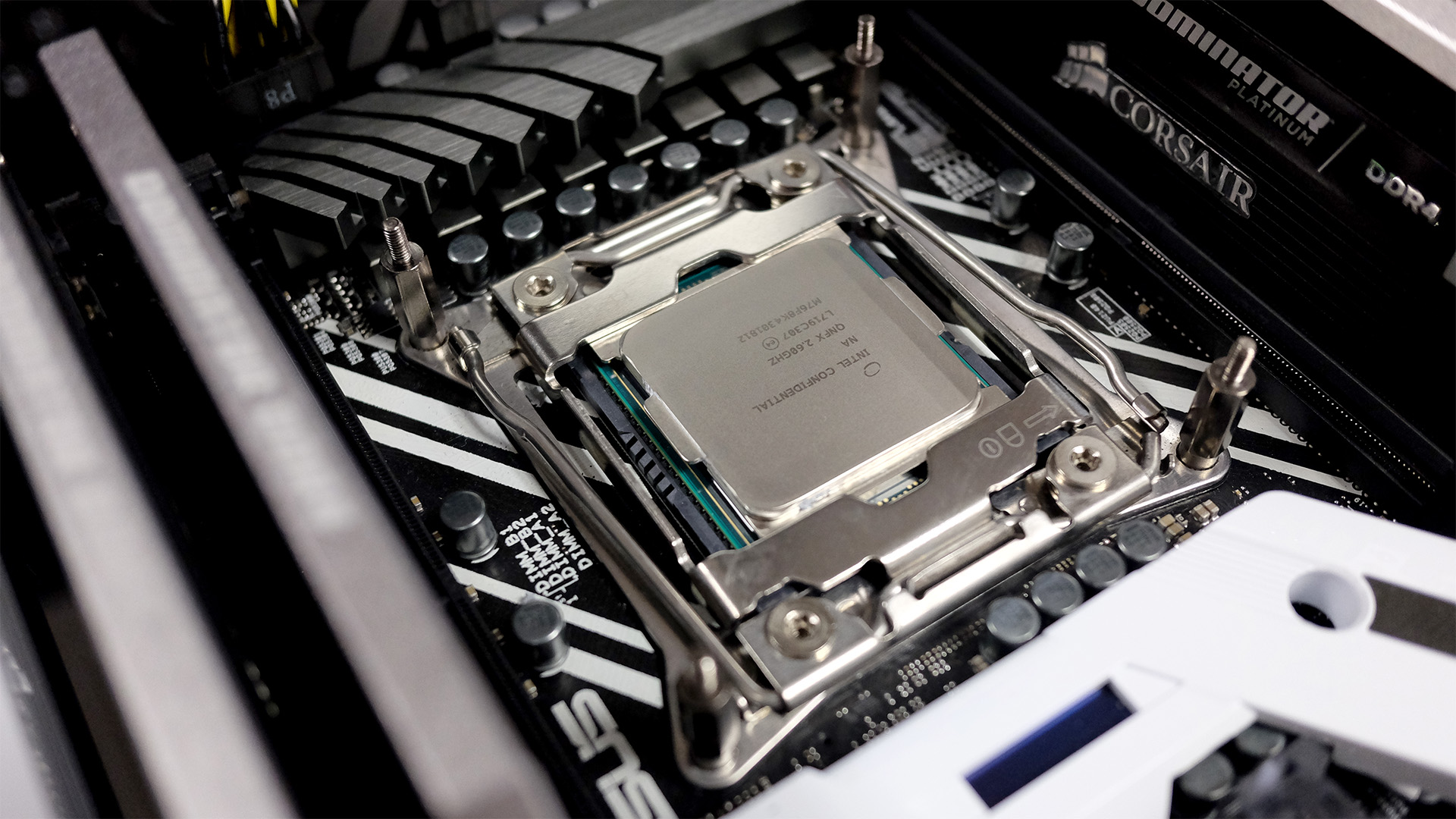Intel reveals robust financial results, but it’s losing turf to AMD’s Ryzen CPUs
Desktop chip sales are the blot on Intel’s fiscal landscape

Intel has revealed its latest financial results with an impressive picture of growth that beat analyst estimates, although there was one wobbly area, namely desktop chips, where AMD’s Ryzen CPUs have made a clearly visible dent in Intel’s armor.
Overall, Intel raked in revenue of $16.1 billion (around £12.2 billion, AU$21 billion) for Q3 which was up 6% compared to the previous year, with a net income of $4.5 billion (around £3.4 billion, AU$5.9 billion) which represented a strong increase of 34% year-on-year.
And here comes the ‘but’ – desktop chip sales dropped by 6%, and it’s not hard to guess why, particularly when you look at AMD’s third quarter results as we did yesterday.
AMD announced that its computing and graphics group (Ryzen and Radeon) secured revenues of $819 million (around £620 million, AU$1.05 billion), which was up a massive 74% on the previous year.
Meanwhile, Intel’s client computing group (desktop and notebook chips, along with mobile devices, and wireless chips) saw its revenue remain flat, with no growth, whereas all other groups showed strong double-digit revenue growth (except data centers, which was up 7%). The IoT group was up 23% and Intel’s non-volatile memory solutions group shifted up several gears with 37% growth.
This is, essentially, the other piece of the jigsaw showing that AMD is plowing ahead in the processor arena thanks to Ryzen. AMD’s CEO even said that at some online retailers, Ryzen desktop CPUs accounted for around 40-50% of sales; effectively almost pulling level with Intel.
So perhaps it isn’t surprising that Intel has been firing marketing flak at AMD over the course of this year.
Sign up for breaking news, reviews, opinion, top tech deals, and more.
- We discuss who wins in the AMD vs Intel war of the CPUs
Wake up and smell the Coffee Lake
That said, Intel does have a potential ace emerging from its sleeve in the form of new Coffee Lake desktop CPUs which bring six-core desktop chips into the mainstream for the first time, in an obvious effort to battle Ryzen’s impressive core counts.
Coffee Lake officially went on sale this month, and while you can purchase a processor if you hunt around online, there appear to be considerable stock issues, with some major retailers not showing availability until the beginning of next month.
AMD is also predicting that its growth will slow down thanks to a forecasted diminishing demand for cryptocurrency mining GPUs, and all this could add up to a swing back in Intel’s favor in the overall financial picture.
The good thing is, whichever way you look at it, the processor market is clearly becoming a far more competitive place, and that has to be good news for the consumer on the hunt for keenly priced CPUs.
- Maybe Black Friday will bring further joy when it comes to bargain-basement CPUs
Darren is a freelancer writing news and features for TechRadar (and occasionally T3) across a broad range of computing topics including CPUs, GPUs, various other hardware, VPNs, antivirus and more. He has written about tech for the best part of three decades, and writes books in his spare time (his debut novel - 'I Know What You Did Last Supper' - was published by Hachette UK in 2013).